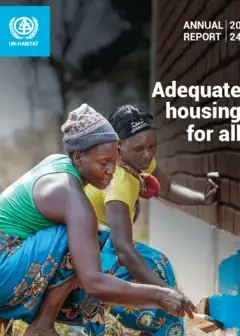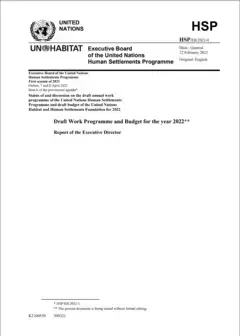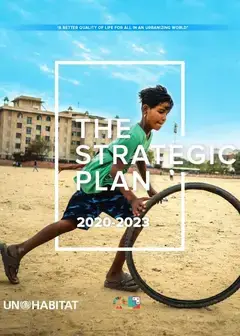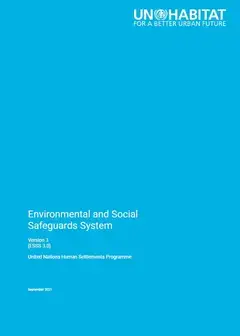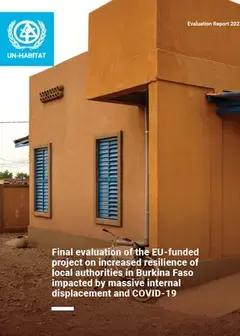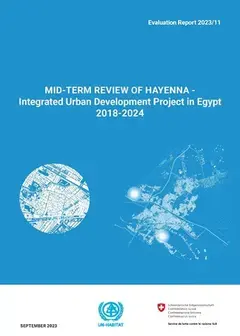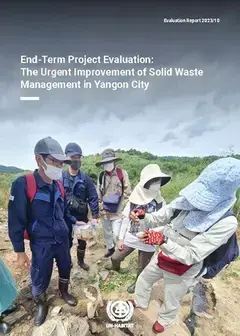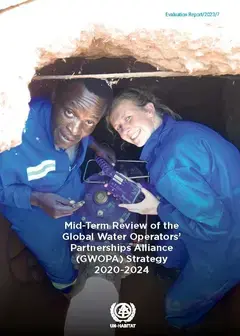“Accountability is the obligation of the Secretariat and its staff members to be answerable for all decisions made and actions taken by them, and to be responsible for honouring their commitments, without qualification or exception.”
- The General Assembly’s resolution 64/259
UN-Habitat is committed to ensure good governance, consider relevant leading practices, create the necessary environment of accountability and transparency in UN‐ Habitat, and guarantee that UN‐Habitat business operations are carried out effectively through continuous improvement.
The UN‐Habitat accountability framework is intended to foster a strong culture of accountability across the Organization. Each UN‐Habitat staff member is expected to exercise his or her responsibility and functions in accordance with the principles set down in this framework.
Ethics
Ethics
Evaluation Reports
Transparency
UN‐Habitat is committed in making available reliable and timely information about existing conditions, decisions and actions relating to the activities of the organization, in an accessible, visible and understandable fashion. UN-Habitat has taken various steps towards ensuring transparency in the decision making and management such as:
Financial management accountability and transparency
UN‐Habitat launched several administrative and financial management policies and procedures with the aim to further enhance accountability and transparency in financial management: a Cost Allocation and Recovery Policy (June 2012), Project Based Management Policy (November 2012), Approved Spending Level mechanisms (2012) and a decentralization of delegations of authority to regional offices down to country offices.
UN‐Habitat open aid movement
On September 2012 UN‐Habitat became the third UN agency to start publishing data to the International Aid Transparency Initiative (IATI) an important step for a more open and transparent organization.
International Public Sector Accounting Standards (IPSAS)
UN‐Habitat adopted IPSAS as at 1 January 2014. The implementation of IPSAS, which aligned UN‐Habitat reporting to international best practices, will (i) enhance transparency and accountability, (ii) improved decision making, resulting from more detailed financial information, (iii) improved consistency and comparability of financial statements and (iv) allow access to more comprehensive information on costs.
Institutionalization of result‐based management (RBM)
Building on the work already done by UN‐Habitat with regard to policy development, training and tools, RBM is further being strengthened to further instil a strong organisational culture focused on results with regard to all pillars of results based management including planning, monitoring and evaluation at strategic, programme and project level.
Implementation of an Enterprise Risk Management (ERM)
UN‐Habitat established in 2012, a risk identification matrix as part of the standard project template that each project leader is required to complete on the inception of every project, including mitigation strategies for medium, high and critical risks.
Reporting Wrongdoing
UN-Habitat takes all reports of possible wrongdoing seriously.
Wrongdoing that may be reported using this reporting facility includes:
- Unlawful acts (for example theft, fraud, embezzlement, solicitation/acceptance of bribes, extortion, possession or sale of illegal substances, smuggling);
- Misrepresentation, forgery, or false certification in connection with any official claim or benefit, (for example regarding dependency allowance, rental subsidy, insurance, education grant, tax reimbursement or travel cost claims);
- Mishandling of contract obligations and relations with third parties leading to loss of property or assets, or generating liabilities for the Organization;
- Failure to disclose an interest or relationship with a third party who might benefit from a decision in which the staff member takes part;
- Allegations of sexual abuse and sexual exploitation as defined in ST/SGB/2003/13
